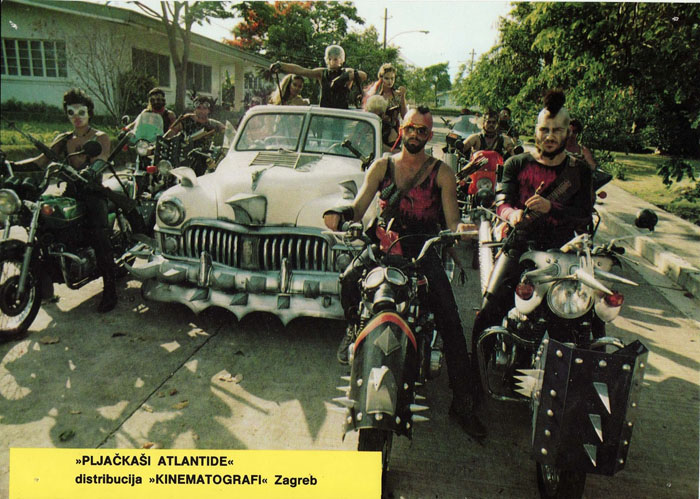
Here’s an article translated from a recent-ish issue of Italian magazine Nocturno. I’m assuming the film that he’s talking about is his hugely enjoyable The Atlantis Interceptors…
The cinema has taught me many things, but the most important thing I have learned is how to juggle things in each situation. In the middle of the seventies, I found myself in the presence of Imelda Marcos, queen of the Philippines. An intermediary of the queen met the producer Edmondo Amati during the Cannes Film Festival, and between them they hatched an agreement. The sovereign at that time was very interested in cinema, and had even given over an entire palace for use as Ministero dello Spettacolo in Manila. Amati called me to his office in Rome and gave me a ten page story, saying: “Go to Manila, where the queen Imelda Marcos is waiting for you. You’ll be accompanied by my director of production. Prepare to shoot the whole film in the Philippines.” I happily accepted, not least because I was then paying the legal consequences of Cannibal Holocaust and many producers were afraid of ‘the ferocious’ Ruggero Deodato, known in France as ‘Monsieur Cannibal’.
The palazzo del cinema in Manila was imposing. Four floors with offices and technical departments: modern moviolas, projection rooms, two studios with lighting rigs, recording studios, mixing rooms, editing rooms, dressing rooms for the actors, everything and more. But all of this stuff was untouched and I came to be seen as a kind of Messiah by the executives who were waiting for some kind of miracle in order to make all this stuff work. They assigned me a government office, which was furnished in a colonial style (but which was in reality very garish). Three secretaries were put at my disposal, and one who carried communications with the studio from my production director. We began to follow our orders and chose some locations to see and do some casting for local actors. But my requests alarmed the management, who didn’t understand a thing about cinema, and they began a series of telephone consultations with industry experts. So the day after I discovered a line of colourful characters waiting outside the door to my office. The three secretaries barely spoke English and the managers as well as Philippino also spoke some Spanish that they’d learned from their grandparents, who’d picked it up during the Spanish occupation. So with this mixture of English, Spanish and Philippino I was able to interview all these people and came to realise that for the most part they had nothing to do with cinema. They were largely friends and family of the executives and the employees of the ministry. But I didn’t dare protest too much for fear of creating a diplomatic problem. Every evening Amati called me by telephone to find out what was happening and I, totally confused, reassured him trying to hide then lack of professionalism at the Ministry.
To be continued…